The rise of the cycling multi-disciplinarian

Traditionally, the various genres and disciplines of cycling and the accompanying World Championships have all rather un-neatly been partitioned into separate boxes. Yes, cycling is a very deep-rooted and traditional sport, which, for obvious reasons, has mostly been led by the original curly bars and asphalt side of things, which to a large extent is still prevalent. However, as we saw in the glens and on the streets of Scotland recently, times are changing – even if that doesn’t sit well with many road-based traditionalists.
- Mountain bike fitness - how to improve your MTB performance
- 2023 UCI Mountain Bike World Cup schedule – a huge year in MTB
- 2023 UCI MTB World Championships - Mathieu van der Poel and his triple-crown ambitions
In terms of cycling stature, mountain biking was often seen as some kind of rebel offshoot when it first emerged in the mid-1980s. It is, perhaps, not surprising that the “original” side of the sport saw it as a heretic fad, something that would blow over before reaching puberty in cycling years. And there are still many out there do still hold that dated belief, or at least who still do not take the off-road side of our sport too seriously.
You only have to dig into the managerial structures of the various pro road cycling teams, the major races, and the national and international cycling federations to see why this is; the sport as a whole is, and always has largely been run by the old guard of cycling.
Thankfully, even the establishment is now being forced to wake up to the fact that the sport is evolving, and moving into new and exciting directions. This semi-enforced (or inevitable), and long overdue evolution is, at least in part, thanks to the likes of Tom Pidcock, Mathieu van der Poel, Wout van Aert, Pauline Ferrand-Prevot and others of their racing calibre and profile. These riders have forced once reluctant hands at the helm of cycling to play a different game, a far more modern and inclusive one.
These ultra-elite racers have shown us all, in no uncertain terms, that the successful mixing and matching or even totally mismatching, of the various cycling disciplines at the top level of the sport, is indeed possible. In demonstrating this to “the board” they have also proved this approach to be beneficial to not only riders but also in safeguarding the future of cycling and its infrastructures, as well as throwing new options out to the pro teams who live from it.
After all, the many sponsors out there now have a far deeper and more varied shopping pool when it comes to places to invest their promotional cash. Let’s face it – there’s a lot more glamour and impact value to be had for a non-dedicated road cycling brand in backing athletes who can turn it on in anything they turn their hands to and with some flare, especially compared to backing some old stager coming out to finish 15th in a second tier stage race on the road.
Plus, somewhat ironically, many of those said old established road hands of the pro peloton seem to also recognise this – which is partly why so many turn to gravel racing towards the tail ends of their careers – an option that was not on the table just a few years back. Their tradition-laced and well-earned recognition of the newest of disciplines and the multi-faceted kids on the cycling block is great for the sport – even if some seem of them seem to have underestimated just how tough the dirty and dusty side of the sport truly is; it does often take these big names to make people in high (cycling) places sit up and take notice.
The Morton mission
Although his greater impact on elite cycling result boards maybe is somewhat out-glitzed by the mainstream racing golden runs of the likes of Pidcock and MVDP, there is no escaping the huge impact that Australian EF Education–EasyPost pro rider Lachlan Morton has had in the process of changing cycling for the better and in encouraging others to mix their own cocktails of riding and racing. Lachlan and his elder brother Gus were (and are) very talented road racers, and both made it to the pro road ranks, with Lachlan entering the World Tour at just 19 years old. However, he soon became somewhat disillusioned with the strict and lonesome lifestyle of a full-time expat pro road racer and turned his back on a potentially successful and traditional pro road career.
Fast forwarding through periods of self-contemplation and outback bike packing adventures with Gus, and their making of the Thereabouts film, Lachlan fell in love with road racing once again, and through racing largely for the love and fun of it on the US pro road race scene (with Gus), his racing talent was again glinting, and he returned to the highest echelons of the World Tour, only on his own terms this time around. His ideal somewhat unceremoniously became termed the “alternative calendar” by his EF Education–EasyPost Pro cycling team. Lachlan has more than proved his creative worth to the team over the years, and through his epics, and the media he produced around them, he has, quite rightly become something of a cult figure in the evolving world of offroad endurance racing.
His bold moves and uniquely logical take on the sport have garnered much wider attention than we may realise, and many of his more illustrious roadie peers, and other major pro teams have plainly seen the value in this approach, that being the mixing of various disciplines - and simply being different and “real.”
The bright and mixed future of cycling?
Naturally, in some quarters, there is still some apprehension towards mixing and matching disciplines – and some do scoff at the off-road rebellion that Pidcock and Co take on, with some seeing it as playing with needless fire and not prioritising the purity and lofty heights of road race stardom, and in a sport where absolute focus is often required to reach the pinnacle it’s an approach that does have to be well managed by all concerned, at the highest lever that is. These are not the first-generation racers who could potentially have achieved such things, but it would not have even been considered in the era when a mountain biker named Cadel Evans ruled the road.
On watching the likes of Pidcock and MVDP in particular, it’s clear to see that they are in fact freaks of nature, riders who could potentially win anything they chose to in elite level cycling – and MVDP did even hint that he would ride enduro a few years back, while Pidcock is no stranger to the downhill pistes of Andorra, where he has been known to duel it out with Greg Minnaar – just for fun, another taboo breached in traditional cycling terms.
There’s little doubt that their offroad racing skills have helped greatly in making these riders superb bike handlers, as well as the physical benefits they have gained from the sharp high-end demands of offroad racing. Then, there is also the one thing that is often overlooked, the simple fact that these guys love racing their bikes, particularly racing off-road. They have fun doing their job, which keeps them fresh and motivated, something which does tend to fade away with seasoned road racers, where things can become mundane, as former Tour de France winner Geraint Thomas inferred in a recent podcast (with Andrew McQuaid of Trinity Racing).
The bigger picture impact of these multi-disciple racers, particularly that of the elite masters of the combined art, is perhaps even more important than that of acting as a wakeup call for the establishment; they are proving to be a huge and very wide-reaching inspiration to younger riders and non-cyclists alike. Some of these youngsters (and oldies) may not have considered taking up cycling had not been for the tail-whipping Olympic-winning antics and excitement they saw with Tom Pidcock, not unlike the Wiggins effect of 2012. These guys make all forms of cycling exciting to watch, even for the totally unimitated which has and will continue to benefit the sport in so many ways in the years ahead.
With all of this starry-eyed talk of the greats of the moment, their impact was also clearly on display in the junior ranks of the World Championships, where the 16-year-old Dane prodigy Albert Philipsen took gold in both the Junior Road Race and XCO events, becoming the youngest junior road race champion of all time, and scoring both titles in the long-week of a combined championship, a clear example of where cycling may be heading in the imminent future.
And to think, a whole bunch of us have been mixing it up for decades, perhaps now we will be considered cool, and be able to openly brand ourselves cyclists again – not to be defined as roadies, mountain bikers, tourists…
[Words by Steve Thomas]
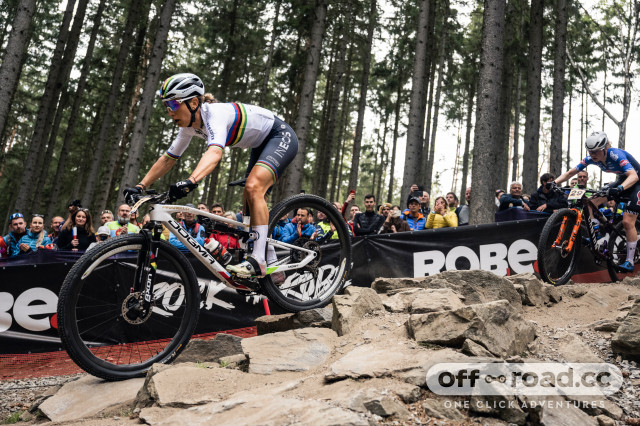
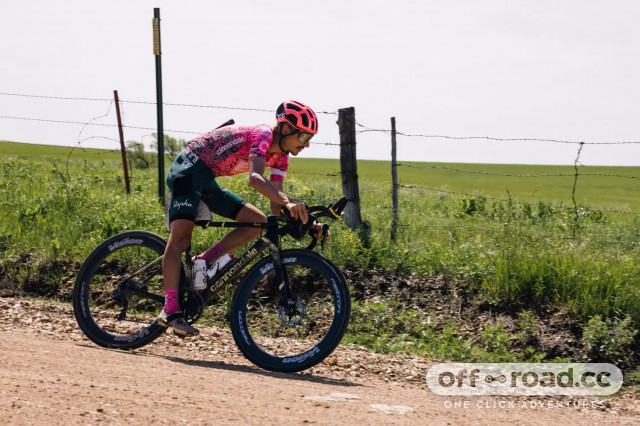
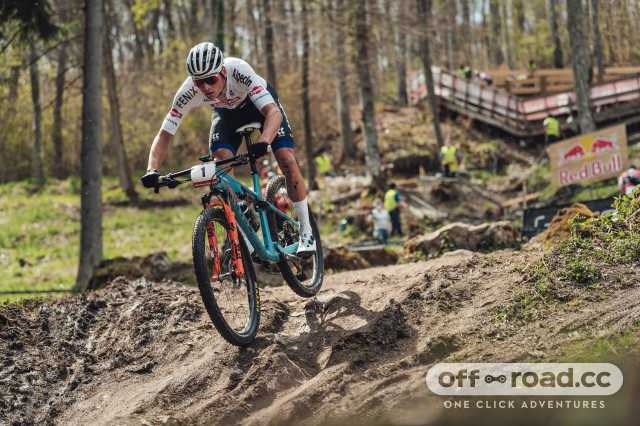
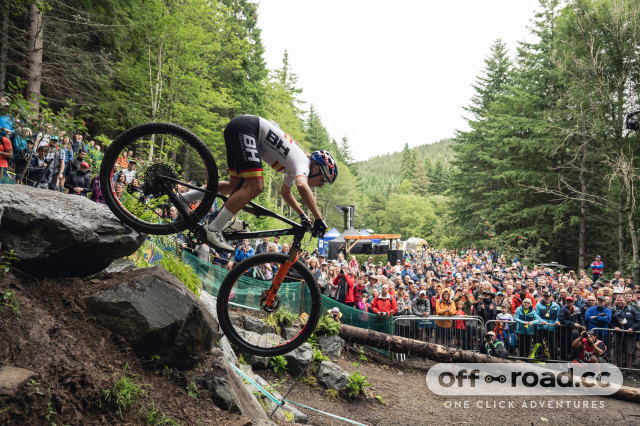
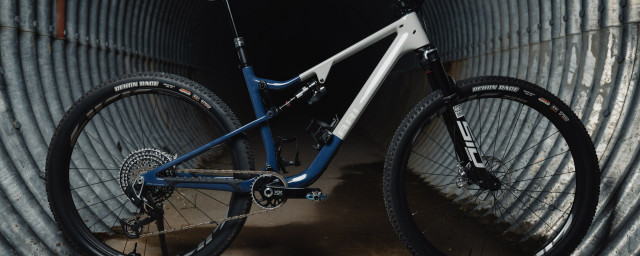
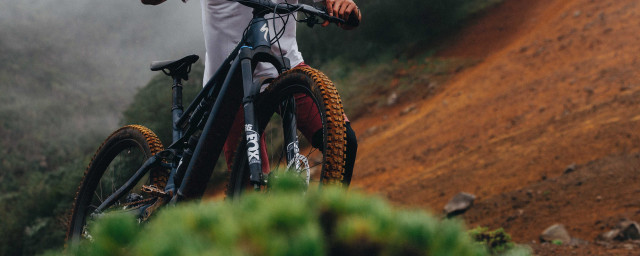



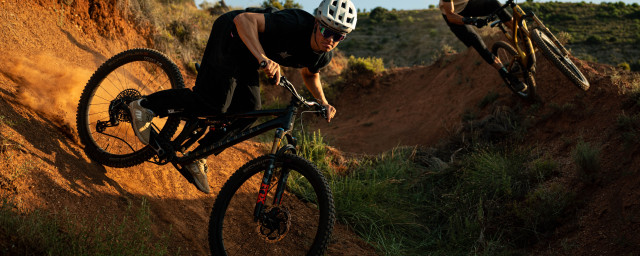
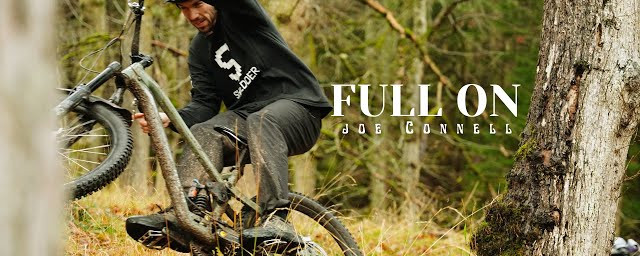
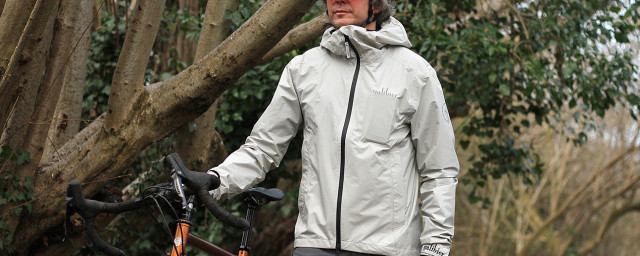
2 comments
Long may it continue. All the above are the most exciting thing to happen to the pro peleton in decades. Witness WvA's king-making antics on the Galibier/Granon (and most of the rest of France) last year, TP's descent of the Galibier the following day, MvdP's worlds, CX exploits by all (way more satisfying spectator experience IMHO)
Im not sure calling TP and MvDP freaks of nature is helpful. Supremely talented yes, deeply trained and focused yes. But not freaks.